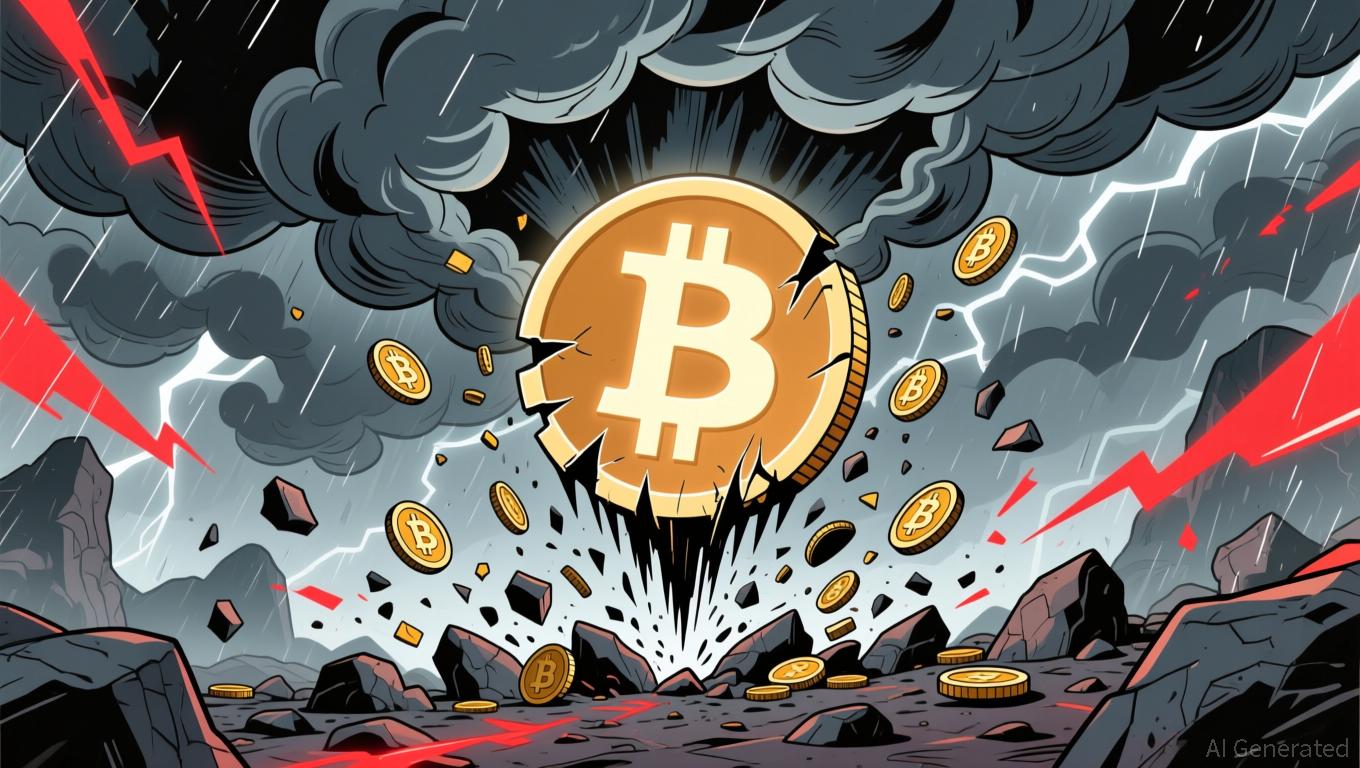Bitcoin Drops Below $81,000 Amid Market Volatility
- Main event triggers concern across cryptocurrency markets.
- Major exchanges like Binance witnessed significant activity.
- Equity markets linked to Bitcoin experience declines.
Bitcoin’s price dropped below $81,000, marking a 12% decrease in 24 hours. This downfall, due to large-scale liquidations and declining liquidity, triggered significant financial repercussions, erasing $1.2 trillion from the market capitalization.
Bitcoin plummeted below $81,000 on November 21, 2025, experiencing a decline of over 12% within 24 hours on major exchanges like Binance.
The dramatic fall in Bitcoin’s value underlines ongoing market volatility, affecting investors and causing ripple effects across connected assets and exchanges.
Market Impact
The fall in Bitcoin’s value to $80,691 on Binance led to over $1.2 trillion in market cap loss in recent weeks. Major exchanges and large holders, including institutional investors, were pivotal in activity.
Key industry leaders have not issued official statements, maintaining silence on public channels. Real-time data from exchanges like Binance remains the main source of market status updates and analysis.
Market capitalization has faced significant erosion, affecting equities tied to crypto markets like MicroStrategy, while on-chain metrics identify bearish conditions. Panic-driven trading has compounded market instability.
The sudden drop reflects historical patterns of market corrections, invoking widespread liquidations and declines in DeFi ecosystem value. Available data highlight bearishness reminiscent of past market corrections.
Bitcoin market conditions are the most bearish they have been since the current bull cycle started in January 2023, adding, “We are highly likely to have seen most of this cycle’s demand wave pass.” Source
Investors await insights into potential financial outcomes, with experts signaling caution amid ongoing volatility. Historical data suggest similar scenarios led to a period of market stabilization after initial declines.
Disclaimer: The content of this article solely reflects the author's opinion and does not represent the platform in any capacity. This article is not intended to serve as a reference for making investment decisions.
You may also like
Bitcoin News Update: Bitcoin's Recent Decline: Can Institutional Investors Help Steady the Market or Intensify the Slump?
- Bitcoin's price drop below $85,000 has intensified debates as long-term holders offload over 400,000 BTC, per economist Peter Schiff's warning about "weak hands" deepening selloffs. - High-profile exits like Owen Gunden's $1.3B BTC liquidation highlight profit-taking by OGs, while institutions via ETFs have absorbed 2.39M BTC since 2024, per Ark Invest. - Market fragility worsens as gamma exposure forces dealers to sell near $85,000 support, but institutional demand could stabilize prices if buying conti

YFI Value Drops 4.78% Over the Past Week as Market Fluctuations Continue
- YFI rose 0.1% in 24 hours but fell 4.78% in seven days, with 14.2% monthly and 50% annual declines. - Price movements reflect broader market instability, not project-specific updates or governance changes in Yearn.finance. - Analysts predict YFI remains sensitive to macroeconomic trends and global investor sentiment in the near term. - Token consolidation continues without fundamental shifts, urging investors to monitor on-chain metrics and protocol updates.

Bitcoin News Today: Bitcoin Drops to $90K—Is This a Prime Buying Chance or the Start of a Deeper Downturn?
- Bitcoin fell below $90,000, pushing 70% of active capital into losses and erasing $120B in market value. - Short-term holders face >30% drawdowns, with fear metrics hitting 2-year lows as $1.9B in leveraged positions liquidated. - Analysts cite historical rebounds after extreme fear, but MicroStrategy's leveraged holdings risk further selling if prices drop. - Institutional actions and Fed policy uncertainty remain key factors, though oversold indicators suggest potential 40% near-term rebound.

Coast Guard Strengthens Prohibition of Hate Symbols to Combat Antisemitism and Extremist Activity
- U.S. Coast Guard reversed a policy to reclassify hate symbols like swastikas and nooses from "potentially divisive" to prohibited, following backlash from lawmakers and advocacy groups over antisemitism risks. - The reversal came after a leaked draft proposal aligned with Trump-era Pentagon directives, which critics argued weakened harassment definitions and accountability for hate incidents. - Coast Guard reaffirmed strict prohibitions on divisive symbols, emphasizing severe punishment for violations, b
